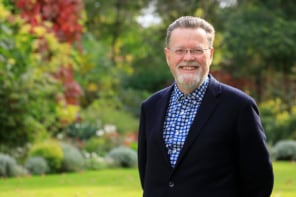
A physicist has been appointed as Serbia’s minister of education, science and technological development, raising hopes that the tide might be turning for the country’s ailing research sector. Srđan Verbić, 43, takes up the position after being appointed by the new Serbian prime minister Aleksandar Vučić, who was sworn into office at the end of April. Verbić will also be joined in government by Aleksandar Belić, head of the country’s Institute of Physics, Belgrade, who was made secretary of state for science.
Verbić graduated in theoretical physics from the University of Belgrade in 1993, before co-ordinating the physics programmes at Petnica Science Center near Valjevo. He received a Masters in artificial intelligence in 2001 and a PhD earlier this year from the University of Belgrade in the field of evaluating knowledge tests. Verbić has also worked at the Programme for International Student Assessment and since 2005 was based in a governmental agency for evaluating education quality, where he advised on natural sciences.
Separating science from education
One of Verbić’s first actions as science minister has been to group science and higher education together and separate them from the much larger education sector – something that scientists had been campaigning for since a previous dedicated science ministry was annexed to education in 2011. Verbić told physicsworld.com that he is now looking to set up a science foundation in Serbia and to bring back the best Serbian scientists from abroad. He also wants to see more investment in science, which is currently “far from satisfactory” with Serbia spending just 0.96% of its GDP on R&D in 2012.
“Unlike the huge and overcomplicated problems in education, it’s clear what the problems are in science and how to solve them,” Verbić told physicsworld.com. “Perhaps the most important thing is the creation of a long-term science-research policy and the separation of grant calls and evaluations from daily politics, leaving them to experts.” Other issues facing Verbić include an increase in the number of institutions that are in debt and protests by researchers over poor funding and delays in getting the money they were promised. “Science funding is so small that practically all of it goes on salaries,” he says.
“Extremely good news”
Verbić’s appointment has been greeted positively by scientists. Milovan Šuvakov of the Institute of Physics, Belgrade, who is unofficially advising the new cabinet and who helped organize a large demonstration in support of setting up a dedicated science ministry, says the appointment is “extremely good news” for science and education in Serbia. “Verbić is an intelligent and hard-working man who always makes well-thought-through decisions and is above all very well informed about problems in these sectors,” he says.
Those with political experience did not do a lot, so maybe it’s time for inexperienced people
Srđan Verbić, Serbia’s minister of education, science and technological development
Slobodan Bubnjević, a physicist by training who is based at the Center for Promotion of Science in Belgrade, says that Verbić’s appointment came as a “big surprise” because few people believed the post would be given to a scientist. Bubnjević sees Verbić’s background in physics as being positive because researchers have wanted scientists to be in charge for some time. “The expectations are enormous,” he adds. However, Bubnjević worries that Verbić’s lack of political weight could make reforms difficult. “Verbić is an expert in education with an untainted reputation in research and education communities, yet he is not a political figure,” he says.
But Šuvakov points out that Verbić’s team does have a great deal of experience. “Verbić has been working for a decade in a governmental agency that evaluates education, and Belić already has experience working in the ministry as an aide to a previous minister from 2001 to 2003,” he says. Verbić seems unconcerned about his lack of political know-how. “Those with political experience did not do a lot, so maybe it’s time for inexperienced people,” he says. “We’ll base all our decisions on empirical evidence, instead of on impressions, as is too often the case.”



